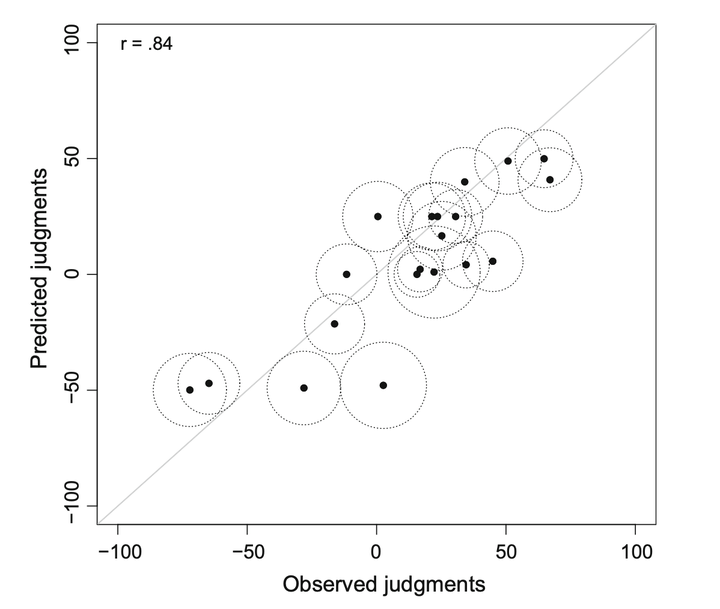
Abstract
Over the years several non-equivalent probabilistic measures of coherence have been discussed in the philosophical literature. In this paper we examine these measures with respect to their empirical adequacy. Using test cases from the coherence literature as vignettes for psychological experiments we investigate whether the measures can predict the subjective coherence assessments of the participants. It turns out that the participants’ coherence assessments are best described by Roche’s (Insights from philosophy, jurisprudence and artificial intelligence, 2013) coherence measure based on Douven and Meijs’ (Synthese 156:405–425, 2007) average mutual support approach and the conditional probability.
Type
Publication
Synthese, 194, 1303–1322